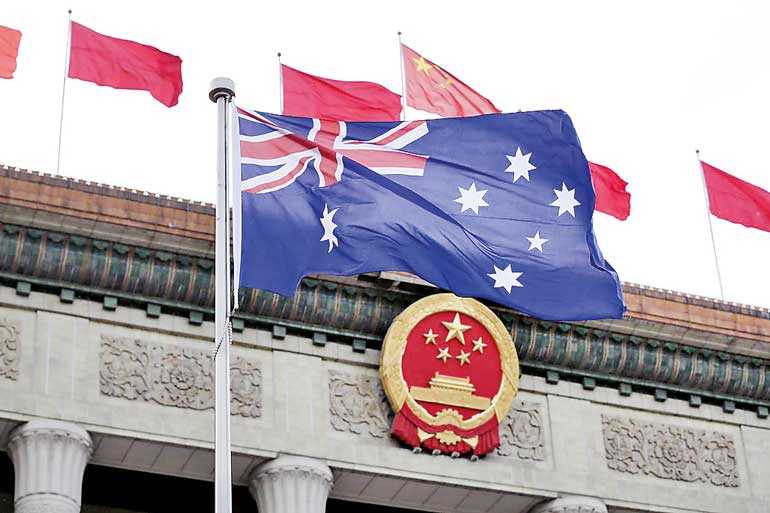Wednesday Feb 25, 2026
Wednesday Feb 25, 2026
Monday, 25 November 2019 00:04 - - {{hitsCtrl.values.hits}}

Australian flag flutters in front of the Great Hall of the People during a welcoming ceremony for Australian Prime Minister Malcolm Turnbull (not in picture) in Beijing, China, 14 April 2016 - Reuters/File photo
MELBOURNE (Reuters): Australian politicians on Saturday described as disturbing media reports that a man seeking asylum claims to be an agent of Chinese intelligence services who detailed Beijing’s efforts to infiltrate political systems in Australia, Hong Kong and Taiwan.
Resource-rich Australia’s ties with China have deteriorated in recent years, amid accusations that its most important trading partner is meddling in domestic affairs, while Canberra fears that China seeks influence in the Pacific region.
“These are very disturbing reports,” said Australian Treasurer Josh Frydenberg, adding that government law agencies were dealing with the matter and would not comment on particulars of individual cases.
The defector, named as Wang ‘William’ Liqiang by Nine network newspapers, gave a sworn statement to the Australian Security Intelligence Organisation, or ASIO, identifying China’s senior military intelligence officers in Hong Kong.
He has also revealed details of how they fund and conduct political interference operations in Taiwan and Australia, the Age newspaper said.
Reuters reported that Australian intelligence determined China was responsible for a cyberattack on its national parliament and three largest political parties before the general election in May. China denies the accusations.
Wang said he was a part of an intelligence operation within a Hong Kong-listed company, which infiltrated universities and media, the Age said.
“I have personally been involved and participated in a series of espionage activities,” it cited Wang as saying in his October statement to the intelligence agency.
The ASIO declined to comment, saying only that it did not comment on operational matters or individuals.
Australia’s department of home affairs said it did not comment on individual cases.
“The purpose of protection visas is to safeguard people who cannot return to their home country due to a well-founded fear of persecution or risk of harm,” a representative said, however, adding in a statement that each case was assessed on its merits. China’s Foreign Ministry did not immediately return requests for comment.